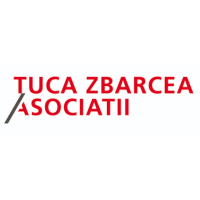

Head of legal | CTP Romania




Alexandra Ivancia
Head of legal | CTP Romania
What are the most significant cases, projects and/or transactions that you and/or your legal team have recently been involved in?
This year has been filled with a series of high-value and strategically important transactions, primarily related to CTP’s rapid expansion of its industrial and logistics portfolio across Central and Eastern Europe.
Romania was one of the main stages for healthy growth and consolidation of CTP’s portfolio. In this context, the Legal Department played its own crucial role in transactional structuring and implementation, all managed with high professionalism and under tight timelines.
We are also involved in the construction and contractual frameworks for multiple build-to-suit projects for multinational clients in several sectors such as automotive, electronic components, retail, e-commerce, and so on. These projects required strong cross-border collaboration and a deep understanding of both local legislation and group-level governance. These facilities were developed by CTP as tailor-made solutions, leveraging the full scope of its integrated platform: from land acquisition and permitting to energy services, financing, and long-term property management.
Another major area of focus for the Legal Department is related to ESG integration and renewable-energy acquisition. Here, we have introduced sustainability-linked clauses in lease and construction agreements and negotiated long-term power-purchase agreements for renewable-energy supply. These steps align our legal strategy with CTP’s long-term goal of achieving carbon neutrality and operational resilience, and offer our tenants a green footprint in their projects and ESG policies.
How do you approach managing legal aspects during periods of instability or crisis to ensure the organisation’s resilience?
In times of instability, whether economic, legislative, or geopolitical, the legal department plays a stabilising role within the company, which is largely guided by three courses of action.
Firstly, conducting risk assessments to identify potential liabilities, contractual obligations, and regulatory and operational vulnerabilities. This full-spectrum view enables us to mitigate risks proactively and align with the broader business strategy, ensuring that management is prepared to address any possible disruptions in operations, the supply chain, or regulatory requirements.
Secondly, proactive contract management and the strengthening of networks are essential for survival in times of crisis. By minimising disputes, consolidating relationships, and conserving resources, we ensure that the organisation remains focused on fostering growth rather than conflict. This approach allows us to maintain steady business development and activity, ensuring that the company emerges from challenges stronger, with a resilient foundation prepared to face future uncertainties.
Lastly, something that should never leave our side, even in troubled times: integrity, humanity, ethical principles, as well as clear and honest communication. We play a key role in ensuring compliance throughout the organisation, thereby legally protecting the organisation and reinforcing the trust of the shareholders. By supporting clear and honest communication, the legal strategy reinforces brand integrity, safeguards the company’s reputation, and supports broader business resilience by promoting transparency with investors, clients, and partners.
Legal departments will increasingly evolve into strategic centres of risk intelligence, combining law, technology, and sustainability to support long-term resilience and growth.
Based on your experiences in the past year, are there any trends in the legal or business world that you are keeping an eye on that you think other in-house lawyers should be mindful of?
While both the legal and business environments are developing on multiple layers, two key trends stand out: ESG integration and compliance, and AI.
The integration of ESG and regulatory compliance will play a strong role in investment and operational decision-making. That is why ESG regulation and reporting are becoming central to corporate governance, and lawyers must lead the way in integrating these obligations into day-to-day operations.
AI-driven compliance and risk analytics will increasingly shape how legal teams operate, especially with regard to real-time monitoring of contractual and regulatory obligations. Additionally, the focus will also fall on digital governance and AI ethics, requiring robust internal frameworks for algorithmic accountability in every company.
From my perspective, staying ahead requires not only technical knowledge but also strategic foresight to translate these trends into practical frameworks that support business agility.
How can general counsel foster a corporate culture that supports ESG principles and compliance across all levels of the organisation?
The General Counsel plays a pivotal role in embedding ESG into the corporate DNA. This begins with aligning legal policies and internal procedures with sustainability goals and continues through proactive communication and training.
At CTP, ESG considerations are moved from theoretical, “nice-to-have” lists and transposed into our core business actions, being reflected in various streams: tender processes, contract drafting, lease negotiations, construction, property management, and so on , thereby creating shared ownership of these principles across the organisation.
What factors influence your team’s decision to use external legal services versus handling matters in-house, and what criteria are used to evaluate their performance?
We generally keep strategic and recurring matters in-house to ensure consistency and cost efficiency, while outsourcing specialised or cross-border mandates that require niche expertise.
External counsels’ performance is measured against responsiveness, commercial pragmatism, cost predictability, and their ability to deliver actionable solutions. We value advisers who understand our business model and act as true partners rather than purely technical consultants.
Head of legal | CTP Romania